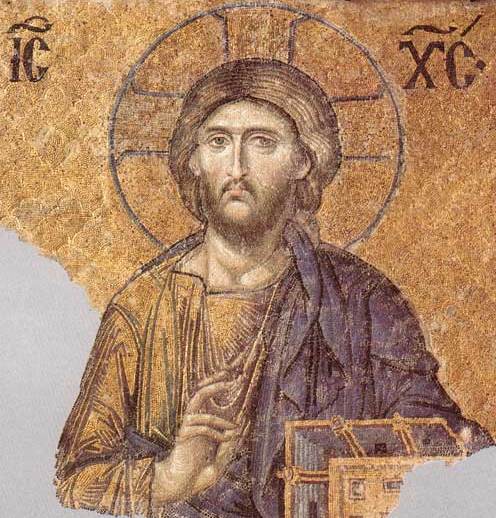There's One Throne in Heaven and Jesus is Sitting on It!
Those familiar with 'Oneness' Pentecostals have heard this slogan. What
does it mean? Is it Biblical? What will we see when we come before the throne?

The Son in the Old Testament
"Obviously the Son did not actually exist before Bethlehem, else we should
have no difficulty locating Him as being actually present in the Old Testament and the period it covered." (Chapter 4, Gordon Magee,
Is Jesus in the Godhead or Is the Godhead in Jesus?).
|
|
Where was 'the Son' in the Old Testament? He's in there! "Who
has ascended into heaven, or descended? Who has gathered the wind
in His fists? Who has bound the waters in a garment? Who has
established all the ends of the earth? What is His name, and what is His
Son's name, if you know?" (Proverbs 30:4).
"'Look!' he answered, 'I see four men loose, walking in the midst of
the fire; and they are not hurt, and the form of the fourth is
like the Son of God.'" (Daniel 3:25).
"It is entirely in accordance with the promise, 'I
will be with thee' (Isa. 43:2), and the consistent teaching of
Scripture touching the theophanies to recognize in the One who
appeared in the fire the very Son of God, the Deliverer of His
people. The circumstances of His appearance with Shadrach, Meshach,
and Abed-nego, illustrate delightfully the lesson of Romans 8:37. 'In
all these things we are more than conquerors, through him that loved
us.' Had the three been miraculously preserved in the furnace, yet
without any sign of the divine presence, they would certaily have
been conquerors. But the surpassing wonder of their experience was
not their deliverance, viewed in itself, but rather the companionship
of their Lord in the furnace. In the added marvel of this sacred
fellowship they were 'more than conquerors.' So was it in Paul's day.
So has it been with all who have known amidst their trials the joy of
walking with the Son of God." (H. C. Hewlett, The Companion of the
Way, pp. 110-111).
Here are some of the exploits of the Son of God, as reported in the Old Testament:

Philo and Friends
'Oneness' Pentecostals present an argument in this format: The Bible cannot
teach the doctrine of the Trinity because its authors were Jews and Jews
do not believe in the doctrine of the Trinity. The Jehovah's Witnesses
are fond of this argument as well, hoping thereby to eliminate any distinctive
doctrines of Christianity.
But what did a first century Jew like Philo Judaeus believe about God?
He believed, as the Bible teaches, that the One True and Living God is
the Father, His Word, and His Holy Spirit. Reading his words can serve
as a useful corrective to projecting modern Rabbinic theology back into
a period before it ever came into being. Philo's first century Jewish theology
is closer to Christianity than to some of its critics.
For example, although Philo never knew or believed that the
Messiah had come, he did expect the Messiah to be a divine image, not
a mere man:
"I have also heard of one of the companions of Moses
having uttered such a speech as this: “Behold, a man whose name is
the East!” [Zechariah vi. 12]. A very novel appellation indeed, if
you consider it as spoken of a man who is compounded of body and
soul; but if you look upon it as applied to that incorporeal being
who in no respect differs from the divine image, you will then agree
that the name of the east has been given to him with great felicity.
For the Father of the universe has caused him to spring up as the
eldest son, whom, in another passage, he calls the firstborn; and he
who is thus born, imitating the ways of his father, has formed such
and such species, looking to his archetypal patterns." (Philo Judaeus,
On the Confusion of Tongues, Chapter XIV).
Philo is of course not a Christian, nor are his writings in any sense authoritative for
Christians. He is however a helpful corrective to the anachronistic
projection of later, anti-Christian rabbinic theology into the
first century.
|
